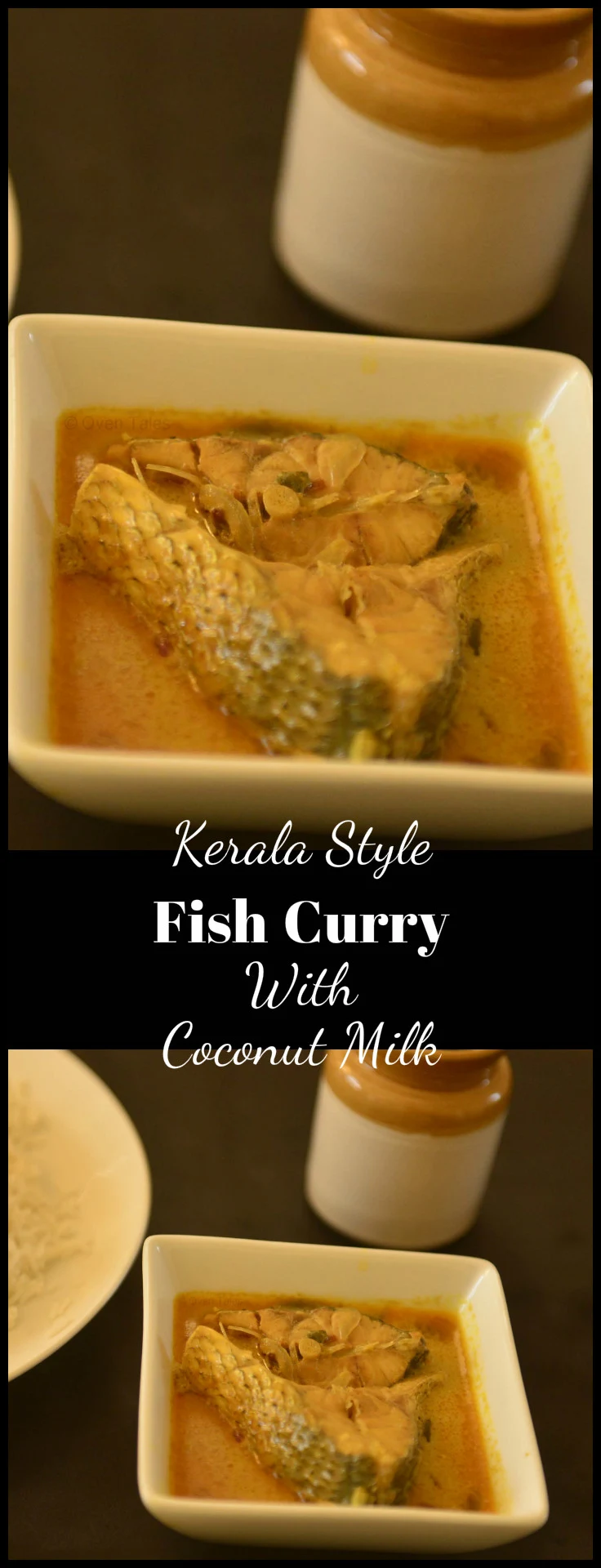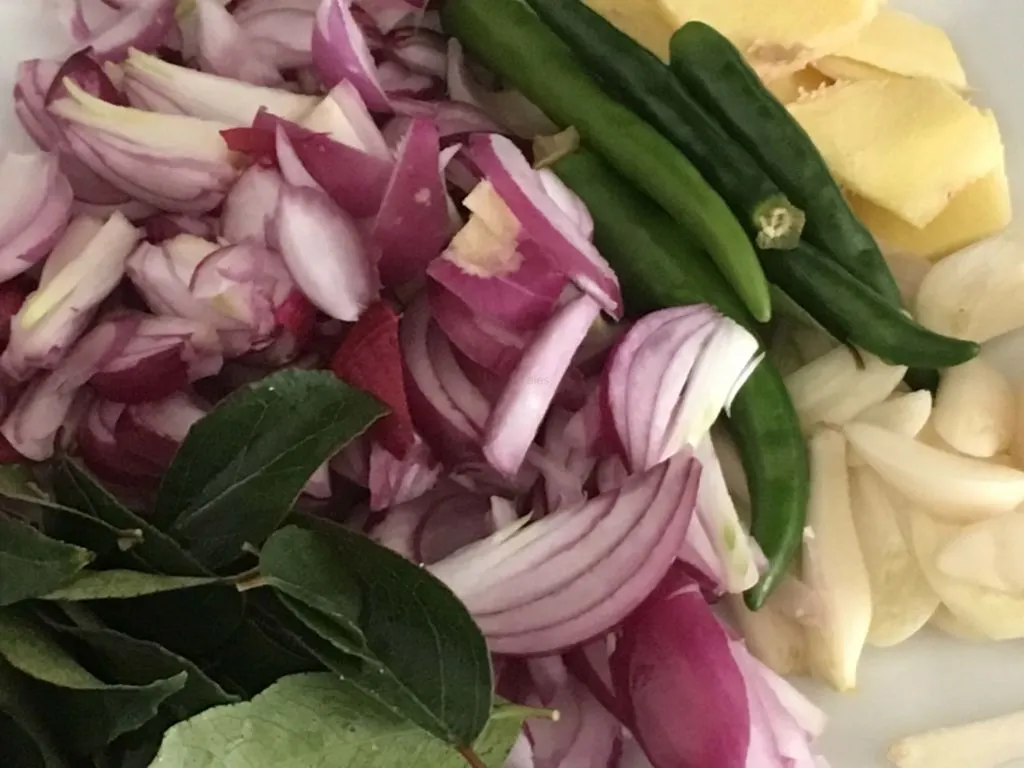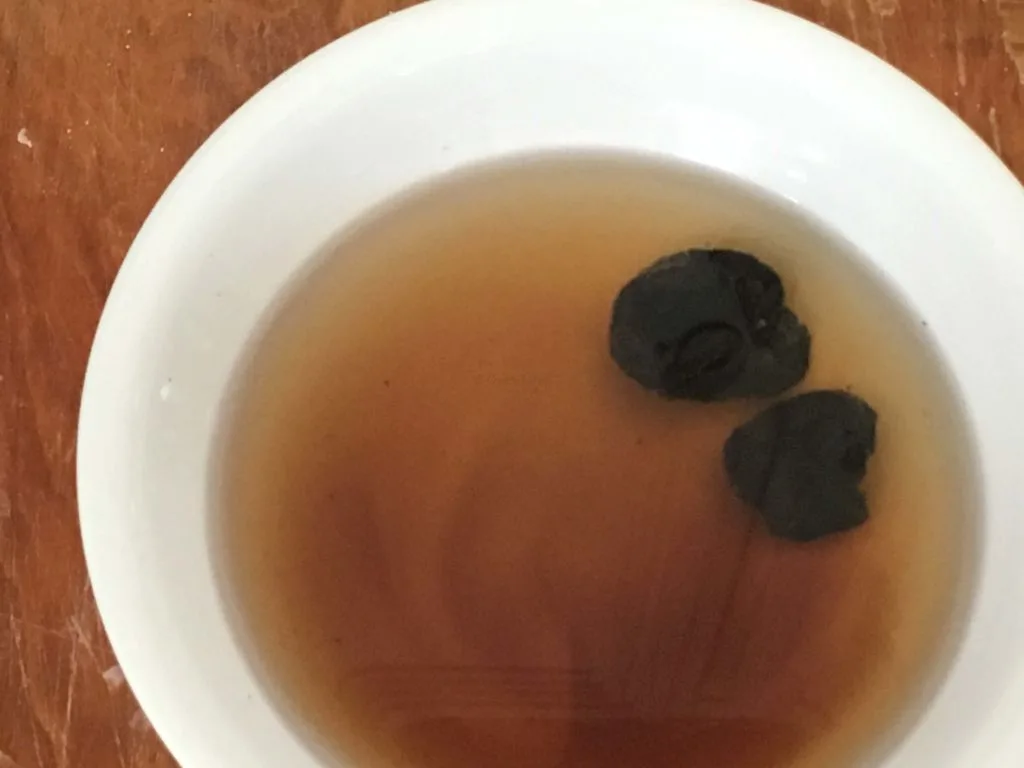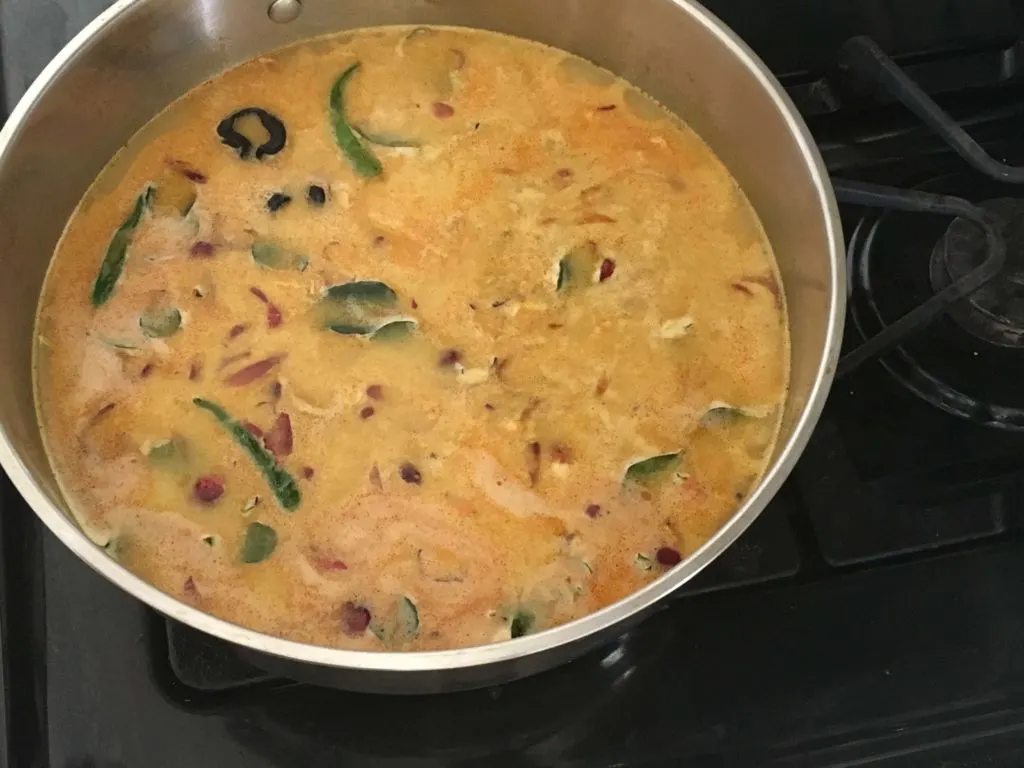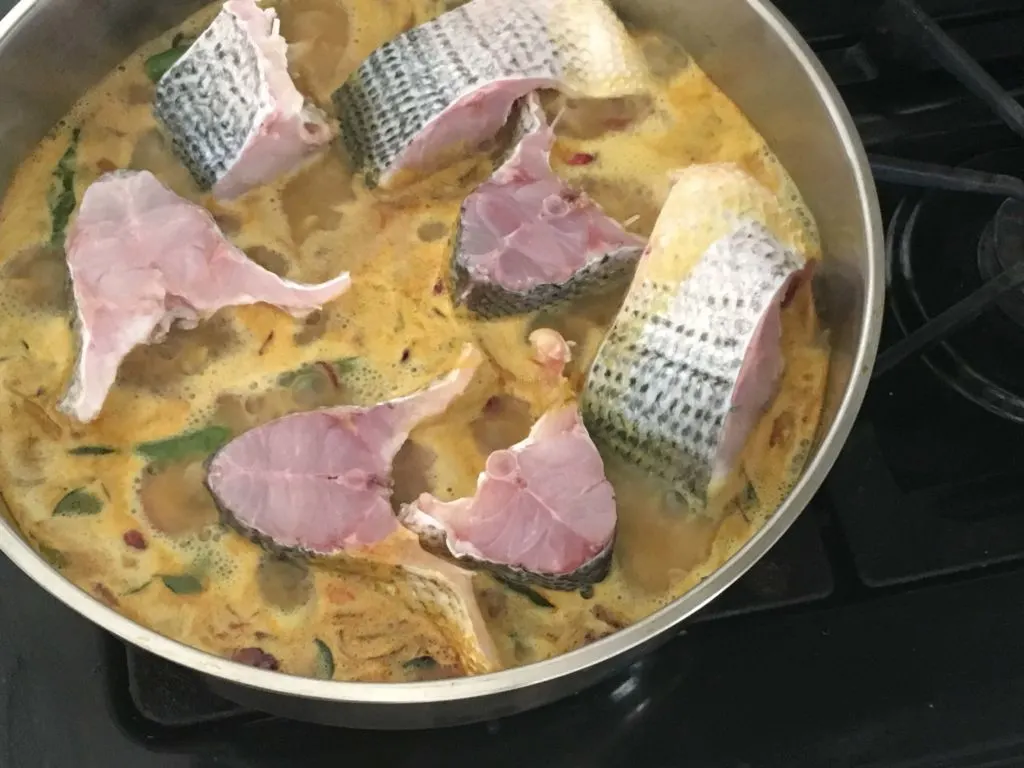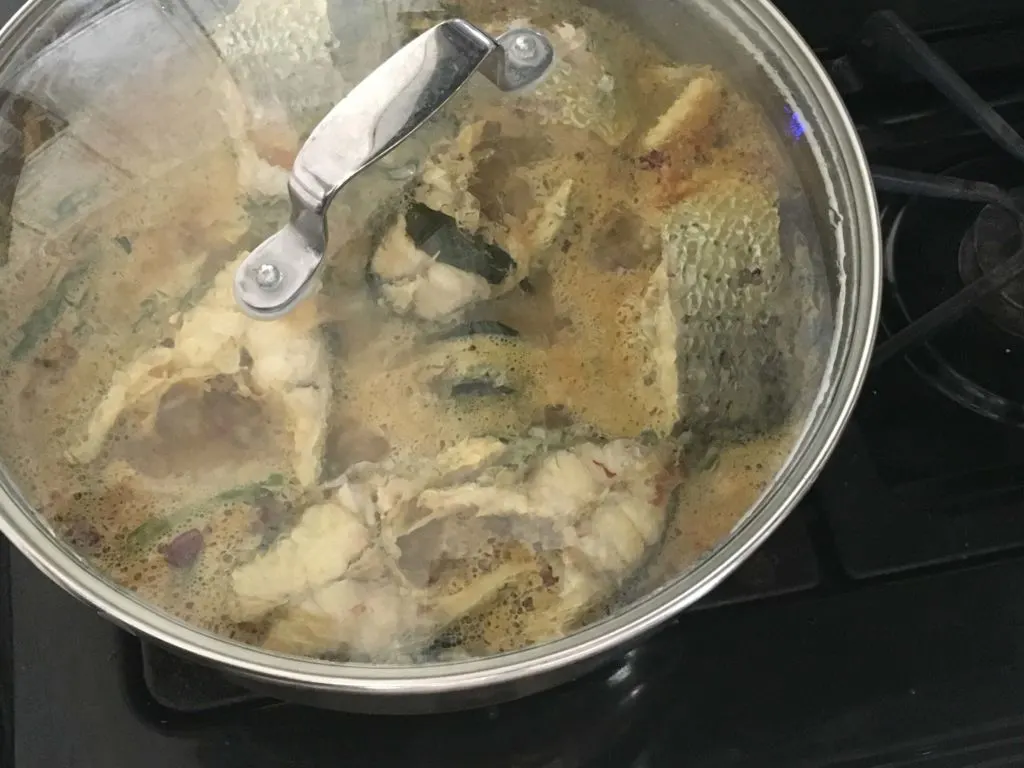This is one of the most common fish curries made in Kerala homes. Fresh caught fish , fresh coconut milk , green chilies and curry leaves right from the backyard or fresh from the market, coconut oil and kokum , these are the ingredients that make this dish irresistible to sea food lovers. Not just seafood lovers , I happen to know a few vegans who would make this dish with tofu or yams. Arguably the best vegan version I had was made with cherry tomatoes !

A word on Kokum – a google search will bring up different names and plants. This article has the right pictures, though I am not sure if it has the correct scientific name. It may be a difficult ingredient to procure, but you can substitute tomatoes, or regular tamarind, or leave it out entirely and still have a tasty curry.
All through coastal India you will find many different versions of fish curries. Some are spicy while a few are mild. There are creamy rich gravies and a few lean soupy versions. In general the dishes with coconut milk are to be consumed fresh , while the more fiery versions are savored best the day after. This gives the flavors enough time to mature and mellow.
I would serve this dish hot. The fresh aromas are very appealing and the brain gets a kick out of of before the taste buds:-).
The kokum has to be washed and soaked in a little warm water for at least 10 minutes before cooking. If you can not find kokum use tamarind or a tomato with the seeds and pulp removed. Thinly slice the onions , garlic ginger and green chilies. Alternately you can crush them in using a mortar and pestle for a more rustic feel. I would recommend using fresh coconut milk – but if only canned version is available skim off 1 Tbsp of the cream from the top and dilute it with 1 cup water for the thin coconut milk and add the remaining cream once the fish is cooked.
For clarity I have used a skillet in the above pictures, but traditionally fish curry is made in an Manchatti which is an earthenware pot. Heat the pan and add about 1 tablespoon of coconut oil (or any flavorless oil) in it when it is hot. Once the oil is hot add the sliced onions, ginger, garlic and green chilies. Saute for a minute , until the onions are soft. Add mustard seeds (optional), fenugreek seeds and curry leaves. Let the seeds splutter and the aromas fill the air. To this add the turmeric and chili powder (optionally a pinch of coriander powder) . Immediately add a few drops of the kokum water to prevent the spice powders from burning. Stir and cook for 30 seconds or so till the water evaporates. Add salt , the kokum with the soaking water and the thin coconut milk.
When it comes to a boil add the fish pieces to it. Pour some of the liquid over the pieces that are not submerged. Cover and let it steam gently for 5 to 10 minutes . If the pieces are large flip them so that all sides get to cook evenly. Take care not to break the fish pieces while flipping them. This is where the bones and the skin on the fish comes handy. These provide the natural structure that holds the pieces together as well as adding flavor and body to the curry. Cook for another 5 to 10 minutes or until the fish is cooked and flakes easily.
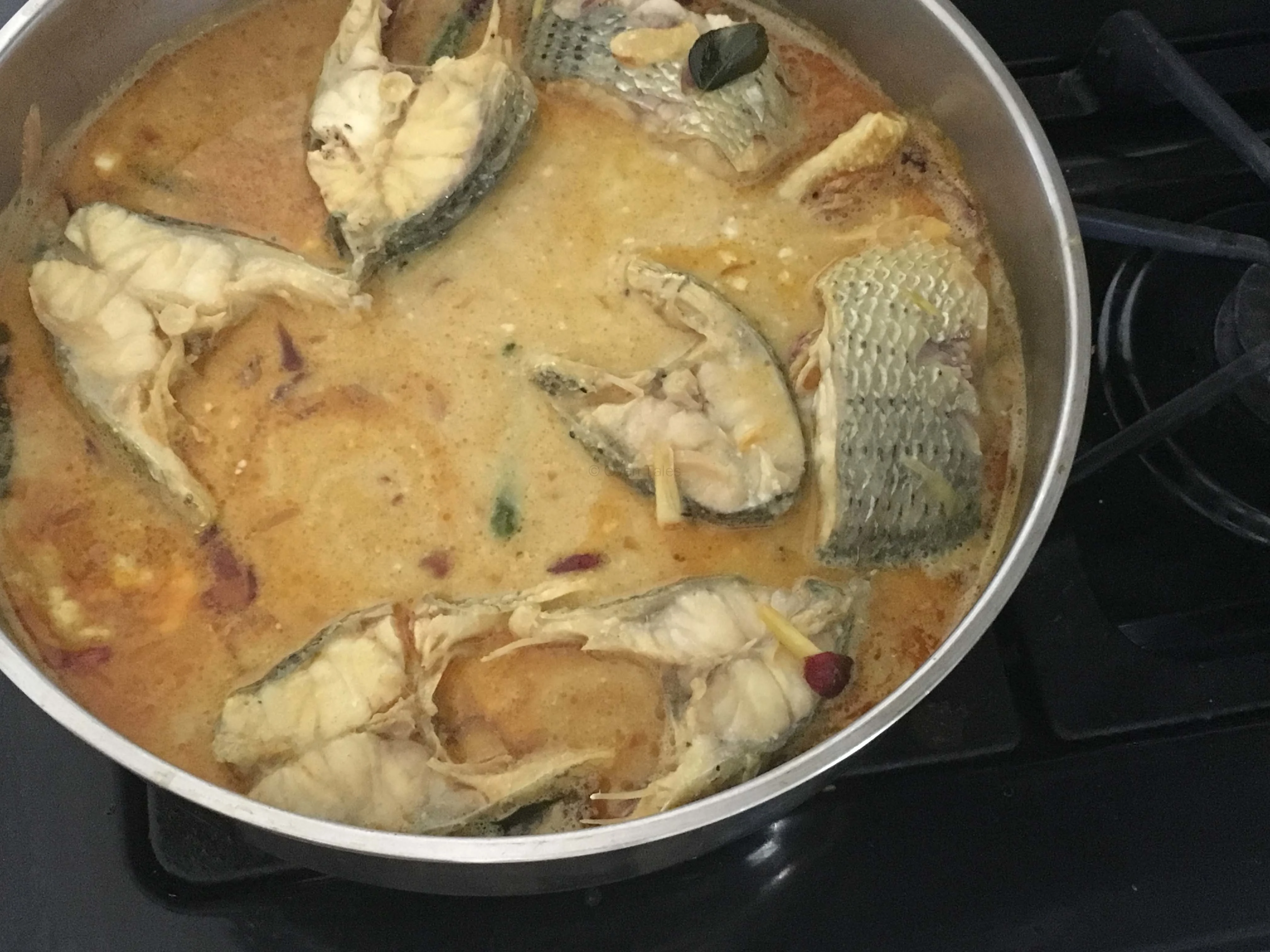
Add the thick coconut milk , adjust salt put the lid the back on. Turn the heat off as soon as the curry begins to show signs of boiling. Remove from the heat and set aside for 10 to 20 minutes before serving. The gravy thickens a bit as it cools.
If you were using the Manchatty or clay pot for cooking, the heat of the pot keeps the curry cooking for quite some time. As a result the gravy thickens quite a bit.
What do we serve this with ? Steamed rice , fish curry and a side of vegetables is complete meal for a Malayali. But we are happy to eat this dish with Malabar parotta , Appam or plain rotis.
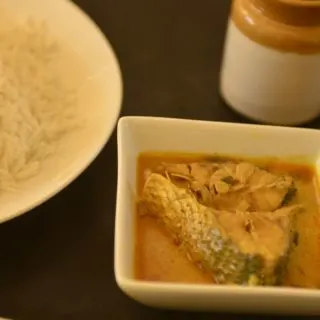
Kerala Fish Curry With Coconut Milk
Ingredients
- 1 lb Fish (500g)Cleaned and Sliced
- 1/2 C Pearl Onions Sliced
- 3 - 4 Cloves Garlic
- 1/2 Inch Fresh Ginger
- 4 - 5 Green Chili
- Few Curry Leaves
- 1 -2 Pieces Kerala Kokum / Kudampuli / Fish Tamarind See Notes
- Coconut Milk From 1/2 Coconut See Notes
- 1/4 Tsp Fenugreek Seeds
- 1/2 Tsp Mustard Seeds
- 1/2 Tsp Turmeric
- 1 Tsp Chili Powder To taste
- 1/2 Tsp Salt To taste
- 2 Tbsp Coconut Oil
Instructions
- Clean and slice the fish to desired size pieces. Set aside.
- Soak the kokum in 1/2 C warm water.
- Grate the coconut and extract the coconut milk . Keep 11/2 Cups of thin coconut milk and 1/2 C thick coconut milk.
- Slice or crush the pearl onions, ginger, and garlic. Break the green chilies into halves if desired. In a heavy bottom pan/wok/terracotta pot heat 2 tablespoons of coconut oil. When the oil is hot add the onion, garlic and ginger pieces to it along with the green chilies. Saute for a few minutes until the onions are soft. Add the mustard seeds , fenugreek seeds and the curry leaves to the oil. Cook for a minutes until the seeds splutter and the aromas fill the air.
- Add the spice powders and salt to the pan along with a few drops of water. Stir fry for 30 seconds till the spices cook and water dries. Add the thin coconut milk and the kokum with its soaking water. Mix and let it come to a boil .
- Slide the fish pieces in. Scoop the liquid with a ladle and pour over the top of the fish pieces. Cover and let cook for 5 to 10 minutes. Uncover, flip the fish slices if the slices are thick, and cook for another 5 to 10 minutes or till the pieces are cooked through.
- Add the thick coconut milk and adjust salt. Let the curry come back to a slow boil over low heat. Take off the heat as soon as bubbles begin to appear on the sides. Cover and let rest for 20 minutes for the flavors to mature.
- Serve immediately or refrigerate as soon as cooled to room temperature.
Notes
- Pomfret, mackrel , cat fish and similar fish work well in this dish.
- If using canned coconut milk, use watre mixed with i tbsp coconut
cream as the thin coconut milk and use the cream for the thick coconut milk - If kokum is not available , soak a small piece of tamarind. Or remove the seeds and pulp from a medium size tomato and add it just before pouring the thin coconut milk .
Important: Nutrition Values are estimates. Actuals vary based on ingredients and serving size.
Check out this quick video
